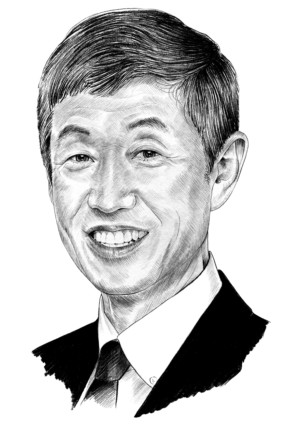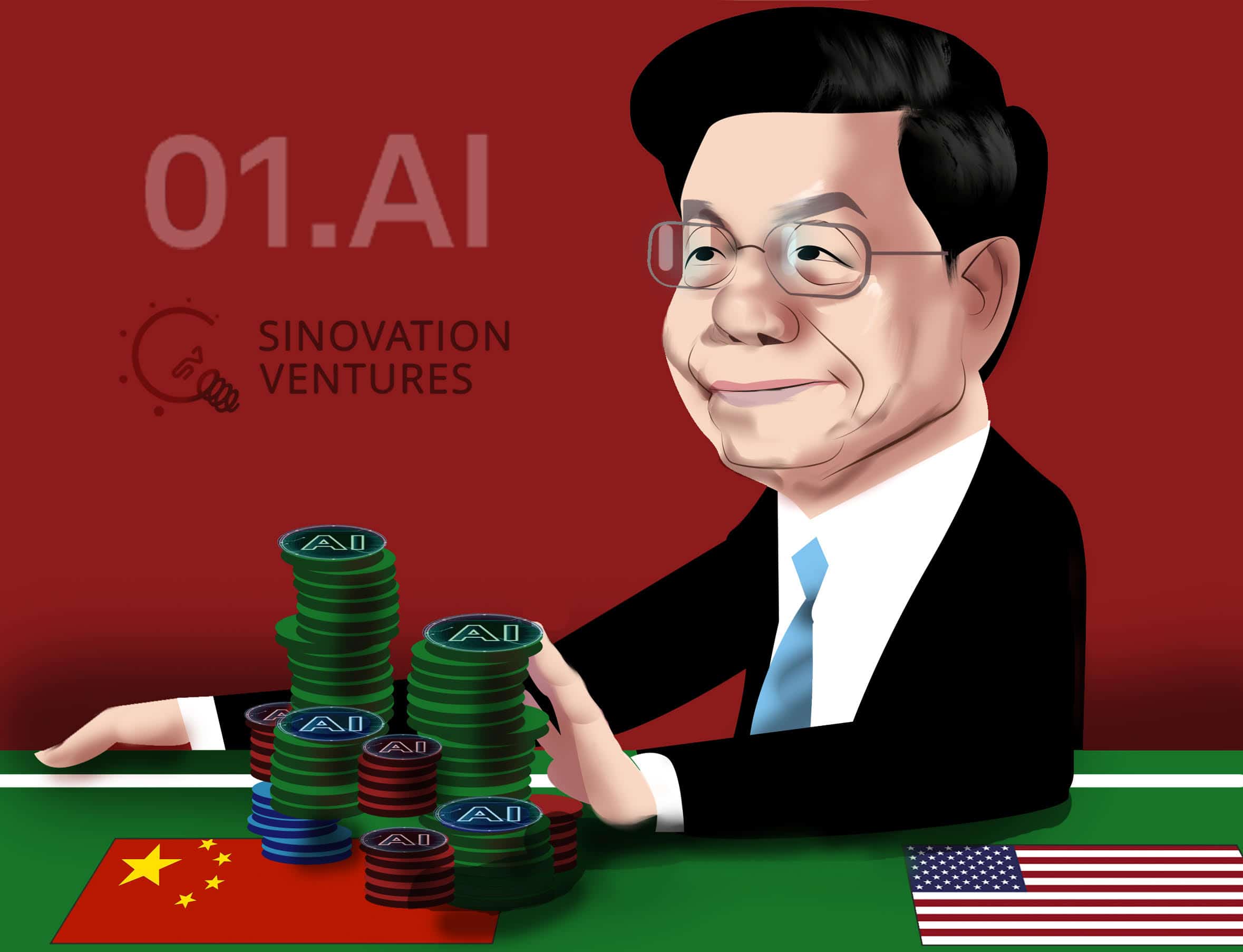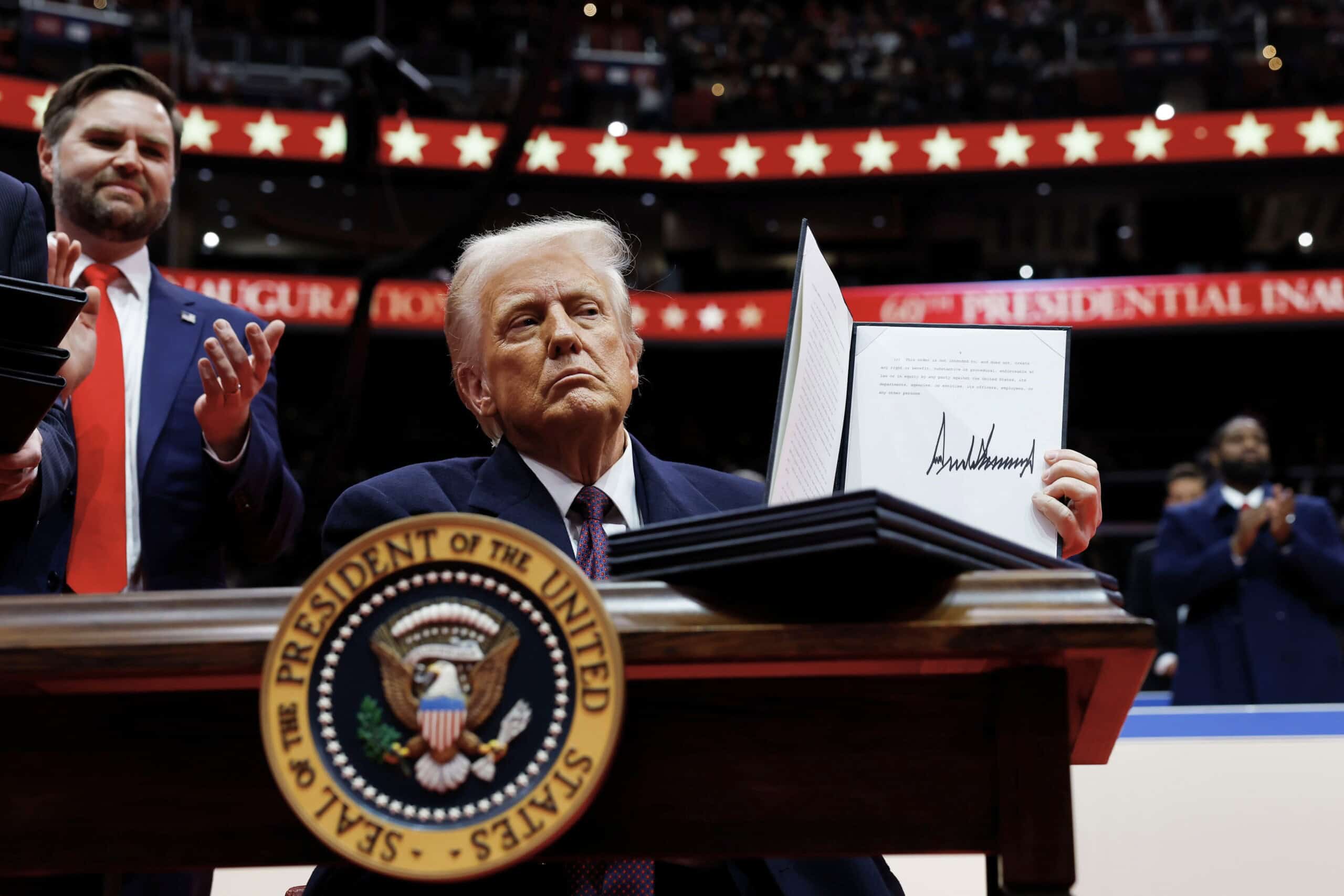Shan Weijian, the chairman and chief executive of the investment giant PAG, has a reputation as one of Asia’s savviest investors. While at Newbridge Capital, later called TPG, he bought stakes in Shenzhen Development Bank and Korea First Bank. At Hong Kong-based PAG, he acquired a piece of Tencent Music and began searching for health care and consumer plays. A trained economist, Shan studied with Janet Yellen at Berkeley, taught at the Wharton School at the University of Pennsylvania and in 1989 founded the academic journal,“China Economic Review.” He recently wrote a memoir, Out of the Gobi: My Story of China and America, about growing up during the Cultural Revolution, and then living in the U.S. What follows is a lightly edited Q. and A.

Illustration by Lauren Crow
Q: Covid-19 has devastated the global economy, starting in China but now reaching just about everywhere. What’s your outlook on growth for the remainder of this year, and are there long term consequences to what we are seeing?
A: China was the first to lockdown and the first to come out of it. By and large, people have gone back to work since the second week of March. Businesses have resumed more than 90 percent but demand remains weak. It will probably take the rest of the year for the economy to fully recover and resume growth. And it seems that Europe and the U.S. will lag behind China one or two quarters in economic recovery since they lag China this much time in lifting the lockdowns.
But the pace of economic recovery depends on government policies. Whereas the U.S. and Europe have unleashed massive and vast stimulus packages, China hasn’t loosened so much with either monetary or fiscal policies. I don’t know why they are so timid and haven’t done as much as other countries on the fiscal side. The Chinese government has more fiscal (as well as monetary) tools than their counterparts. For example, central government debt is only 17 percent of GDP — of which foreign debt is only $28 billion. That is less than the capital my own firm manages!
Can you talk about your investment strategy at PAG? As an investor in China’s market, what are the areas you’re focused on?
My firm PAG has about $35 billion in capital under management. We invest worldwide, but we focus on Asia. We count 150,000 employees in our portfolio companies worldwide, with 43,000 in China, 54,000 in North America, 29,000 in Europe, and 24,000 elsewhere. So our perspective is a not-so-small microcosm of the world economy.
We typically buy control of businesses, and our investments are focused on businesses that cater to domestic consumption, not manufacturing or exports. What drives China’s economic growth has been changing. It used to be fixed asset investments, which for years represented close to 50 percent of GDP. We don’t think this pace of investment is sustainable because what has sustained it — the high savings rate — will drop. China’s growth is increasingly driven by private consumption, which has increased from about 35 percent of GDP five years ago to about 39 percent at the end of 2018. This is still far below the United States, where consumption accounts for about 68 percent of the economy. But last year, the size of China’s retail market surpassed that of the U.S. at $6 trillion. We saw this coming and said, ‘Let’s invest in businesses that cater to private consumption.’ We invested in education, pharmaceuticals, and entertainment. Tencent Music, for example, was one of our portfolio companies.
We have also used little or no debt in our portfolio companies in Asia, but more debt elsewhere. We saw a severe downturn in some of our businesses in China in Q1, but they are all coming out of it. Some businesses weren’t adversely affected at all, such as our music streaming business and dairy farm business — both of which were up in Q1. Now we are focusing our efforts on our portfolio companies in the U.S. and Europe to ensure enough cash and liquidity for them to weather the current crisis. Like I said, we expect our U.S. and Europe businesses to lag China a quarter or two before returning to normal.
| BIO AT A GLANCE | |
|---|---|
| AGE | 66 |
| RESIDENCE | Hong Kong |
| BIRTHPLACE | China |
| CURRENT JOB | Chairman and CEO of PAG |
| EDUCATION | UC Berkeley, University of San Francisco, Beijing University of International Business and Economics |
In this bleak year, have you found any bright spots? Anything that could bode well for the rest of 2020 or the year 2021?
All the companies that can survive the lockdowns will have a chance to do well. Overleveraged companies will go under. Companies with strong balance sheets in growth sectors will be good bets.
The global pandemic has further strained relations between the U.S. and China. Can you conceive of a “decoupling” of the economies, and a dismantling or significant restructuring of the global supply chain that was built up after China entered the WTO in 2001?
It will get worse as the U.S. gets into the presidential election cycle. China bashing and competing to be tougher on China have been a signature theme of every U.S. presidential election since I began to follow them in 1980. More politicians will call for economic decoupling. But I don’t expect big movement on the ground any time soon, and I don’t think the pandemic will change it.
If anything, the pandemic will slow a decoupling because relocation costs money at a time when companies are cash strapped. Manufacturing has been leaving China for years, not so much back to the U.S. but to places such as Southeast Asia where there is cheaper labor and possibly less trade friction with the U.S.. But it is exceedingly difficult for an entire supply chain to move.
More importantly, because China’s retail market has surpassed the U.S.’s, China is no longer just a factory for the world. GM sells more cars in China than in the U.S. Where do you think GM can move to that makes economic sense? The same is true for Apple. The China market is its largest foreign market so why would it move production back to the U.S.? Relocating requires a lot of investment, skilled labor, and the entire network of supplies. After the lockdowns, all firms have a lot of repair to do; investing to uproot what they have will be the last thing on their minds and in their budgets. For many, it won’t make any economic sense. And for most, if they do move, they move to lower cost countries, not back to the U.S.

Your company’s headquarters is in the gleaming financial center of central Hong Kong — a city that, for much of the past year, has been convulsed by demonstrations and violent protests involving the police and radical activists. Some analysts say this is the beginning of the end of Hong Kong as a financial center. Is such a dire forecast possible?
Hong Kong will remain a leading international financial center. I don’t see this role diminishing. Take, for example, the stock exchange. Only about 10 to 20 percent of the revenue of all the listed companies comes from Hong Kong. For the vast majority of listed companies, their businesses and operations are outside of Hong Kong and won’t be affected by economic conditions in Hong Kong.
But that’s separate from Hong Kong’s local economy, yes?
Hong Kong’s economy is severely damaged. And it will continue to go downhill because mainland tourists have been turned away. Tourists from mainland China are the biggest contributors to the city’s businesses — the hotels, airlines, restaurants, and shops, particularly for luxury goods. These businesses are way down and some luxury shops, such as Louis Vuitton, have closed for lack of foot traffic. Keep in mind, financial services, real estate, and retail are the only industries in Hong Kong, since we don’t have manufacturing. The local economy, however, doesn’t really affect Hong Kong’s role as an international financial center.
Is there any chance Shanghai or Shenzhen could strengthen their own stock markets and challenge Hong Kong?
Shanghai and Shenzhen can’t compete with Hong Kong as a financial center for a few basic reasons. There are two critical factors, or what I call necessary conditions for an international financial center. First, you need a convertible currency, which means the free flow of capital. Second is the free flow of information. In Hong Kong, capital can flow freely and so can information. And that’s what makes it unique. There are other things too, such as a well-developed legal system.
You recently wrote that China has not suffered a recession in 40 years and you don’t expect one in the foreseeable future. And yet, for years there have been concerns about China’s slowing growth, mounting debt, and overcapacity in various manufacturing sectors. Have these dark signs over the Chinese economy been an illusion?
For the past 20 years I’ve said that China has two economies: a good one and a bad one, not a new economy and an old economy as some other pundits suggest. The bad economy consists of industrials laden with overcapacity. The good economy is related to private consumption. China’s growth model has been shifting from investment led, which has created the bad economy, to consumption driven, which gives rise to the good economy.
The rapid increase in societal debt is a concern as well, although China’s debt level remains much lower than that of Japan and the United States. Ironically, what really contributed to the slowdown in economic growth was the government crackdown on the shadow banking system, things like peer-to-peer lending, small loan companies and trust companies. The credit tightening has had a disproportionate effect on private businesses, compared with state-owned companies. Even large private firms, such as Wanda and HNA, are in financial difficulty. But I think the crackdown on shadow banking is good and necessary for the health of the economy.
Other things that have contributed to the slowdown of economic growth include the government’s forced reduction of capacity in some industries, a tightening of environmental standards, and weak business confidence brought about by the trade war. Please note that I say, slowdown of economic growth. The growth rate has dropped to about 6 percent, but before Covid-19, the economy was still growing.
| MISCELLANEA | |
|---|---|
| MUSICAL INTEREST | Classical |
| FAVORITE FILM | Only those based on history or true stories |
| NOW READING | The Chinese Mission by Dan Kurtz-Phelan and The House of Yan by Lan Yan |
| WHO DO I MOST ADMIRE? | Mother Teresa |
You’ve been a keen observer of the U.S.-China economic relationship over the past 30 years. What do you think has led to the current tensions?
The economic relationship over the past 30 to 40 years has been mutually beneficial — not lopsided, as some think. The trade imbalance itself doesn’t mean one side gains more than the other. China now runs a trade deficit with most of its top trading partners other than the U.S. China has a trade deficit with Germany, Japan, Australia and South Korea. Now that China has the world’s second largest economy, the old trade rules that allow developing countries to have higher trade barriers than developed countries probably don’t apply any more. China should open its market more, for both trade and investment.
There is another issue, which is that China is catching up quickly with the United States in terms of economic size and technologies. Before, China didn’t matter so much in the world economy. Now it does. That is viewed as threatening to the United States. I expect the tension to continue because this basic trend is unlikely to change.
You said recently that rather than wage a trade war with China, the U.S. ought to work with reformers inside China. What should the U.S. be encouraging Beijing to do in terms of reform?
One of the key points of contention between the U.S. and China relates to China’s state-owned sector and government subsidies. If state-owned enterprises are privatized, then the issue goes away. The major theme of China’s economic reforms over the past 40 years has been to downsize the state-owned sector, which now employs less than 10 percent of urban workers. China announced many years ago that the market should be the decisive force in resource allocation, which means the state shouldn’t be. The furthering reform of the state-owned sector — to downsize and privatize it — will be good both for China and its trading partners. I hope trade negotiations can help accelerate such reforms and changes.

David Barboza is the co-founder and a staff writer at The Wire. Previously, he was a longtime business reporter and foreign correspondent at The New York Times. @DavidBarboza2



